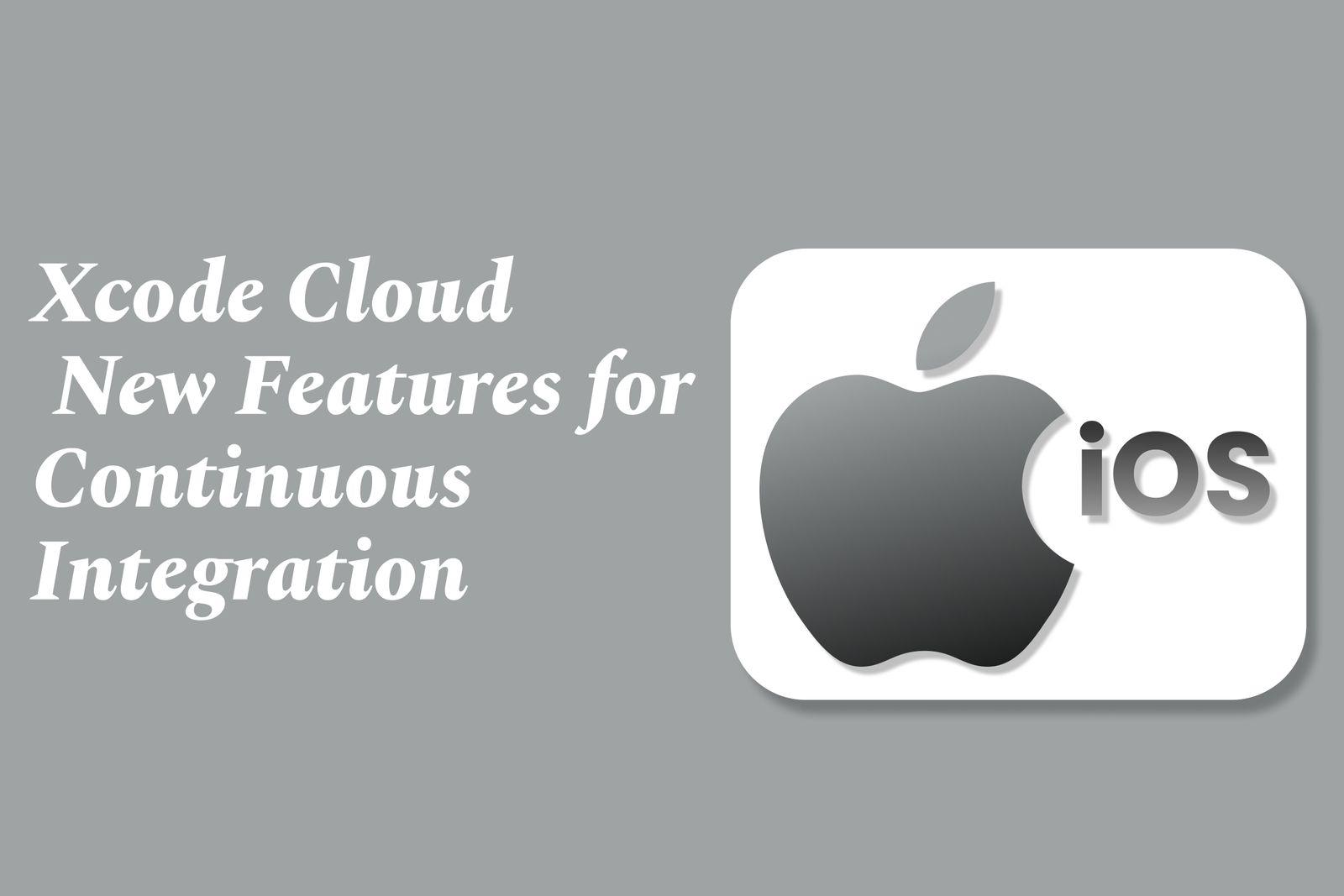Xcode Cloud: New Features for Continuous Integration
Xcode Cloud is Apple’s integrated CI/CD service within Xcode, offering automated workflows, parallel testing across Apple devices, and seamless app deployment. It streamlines building, testing, and delivery, enhancing efficiency for Apple developers in continuous integration.
Xcode Cloud: New Features for Continuous Integration
1 ) Introduction to Xcode Cloud
Apple introduced Xcode Cloud as a continuous integration and delivery (CI/CD) service integrated directly within Xcode. Designed specifically for Apple developers, it accelerates app development by uniting cloud based tools for building, running automated parallel tests, delivering apps to testers, and managing user feedback.
2 ) Key Features of Xcode Cloud
Automated Workflows: Users can configure workflows tailored to their development process or start with built in workflows that alert teams instantly if code changes introduce issues.
Parallel Testing: Enables testing on multiple device types simultaneously, speeding up the testing process while developers continue coding locally.
Integration with Xcode: Build and test results, plus user crash feedback, appear directly within Xcode, with live build status indicators and filtering capabilities.
App Store Connect Integration: The web dashboard provides critical build and test data, workflow editing, and direct build launches.
3 ) Comparison and Innovation
Unlike third party CI/CD tools, Xcode Cloud offers an exceptional user experience by deeply integrating with the Xcode IDE. It supports automated building, device specific testing across all Apple platforms (Mac, iPhone, iPad, Watch, TV), and seamless deployment via TestFlight, eliminating the need for developers to manage device farms or simulators manually.
4 ) Team Collaboration Features
Xcode Cloud supports team workflows by allowing pull requests, code reviews, and merge management integrated within Xcode, provided the Git repository is hosted on platforms like GitHub or Bitbucket.
5 ) Limitations and Requirements
Apple Platform Only: Supports only projects built with Xcode targeting Apple platforms; no cross platform or Android support.
Latest Software Needed: Requires Xcode 13+ and latest macOS versions while allowing legacy OS testing.
Developer Centric: Lacks advanced enterprise CI/CD integrations like configuration as code, making developer or small team management central.
Security and Control: While secure, enterprises do not have granular control over build environments or resource usage as in dedicated solutions.
6 ) Getting Started with Xcode Cloud
Enrollment in the Apple Developer Program, using an Apple ID in Xcode, and having an App Store Connect app record are pre requisites. Projects must use shared schemes within Xcode projects or workspaces to enable CI/CD pipelines.
7 ) Integration with Other Tools (Example Workflow)
A practical workflow example integrates Linear for project management, GitHub for version control, and Xcode Cloud for CI. Branch naming conventions in Linear link issues to GitHub branches, and Xcode Cloud’s workflows are connected seamlessly for automated builds and testing, supporting small teams and scaling for future growth.
8 ) Conclusion
Xcode Cloud represents a significant advancement in Apple platform app development by embedding CI/CD directly into the familiar Xcode environment and streamlining build, test, and distribution processes. While it currently suits small to medium teams best, ongoing updates will likely expand capabilities and integrations.
https://justacademy.in/news-detail/flutter-linux-desktop-support-progress
https://justacademy.in/news-detail/android-developer-preview-releases
https://justacademy.in/news-detail/the-rise-of-react-native-in-iot-applications
https://justacademy.in/news-detail/devtools-updates-flutter-devs-should-know
https://justacademy.in/news-detail/android-15-beta-released:-key-features-to-know
Related Posts
Java supports GDPR and data privacy by enabling secure data handling through encryption, controlled access, and precise data management. It allows developers to minimize PII exposure, ensure data confidentiality, and design workflows that comply with data protection regulations effectively.
Java code quality tools have evolved to include advanced static analysis, integrated security checks, and AI-powered code reviews. These updates help developers detect bugs, enforce coding standards, and enhance security, streamlining the development process and improving overall code reliability.
Java remains a cornerstone in big tech companies, evolving with modern features like records, pattern matching, and virtual threads. Its robust ecosystem, enhanced performance, and growing AI integrations keep it vital for both legacy systems and innovative new projects.
Java and CI/CD pipeline optimizations streamline Java application development by automating builds, tests, and deployments. They improve efficiency through parallelization, caching, and secure secrets management, enabling faster feedback loops and more reliable, scalable software delivery.
Java supports modern cryptography standards through its flexible Java Cryptography Architecture (JCA), enabling integration of advanced algorithms like AES, EdDSA, and post-quantum tools. Libraries like Bouncy Castle offer FIPS-certified, hardware-accelerated implementations for secure development.
Java 23 enhances record patterns by enabling concise, direct destructuring of record components within pattern matching, simplifying type checks and data extraction. This improvement boosts code readability and expressiveness by reducing boilerplate in handling immutable data classes.
Java remains a top choice for mobile app backends, powering scalable, secure, and high-performance server-side solutions. Latest trends include cloud-native microservices, reactive programming, and enhanced JVM optimizations, enabling efficient, flexible, and robust mobile backend development.
Java SE 24 and LTS Java SE 21 offer enhanced features and performance, while Apache Spark 4.0.0 introduces Scala 2.13 support and advanced ML and SQL capabilities. Together, they empower developers to build scalable, high-performance data applications with modern tools.
JUnit 5 modernizes Java testing with a modular architecture, improved assertions, and seamless Java 8+ support. Beyond JUnit, tools like Mockito and AssertJ enhance mocking and assertions, creating a powerful, flexible ecosystem for writing clean, efficient Java unit tests.
Java plays a pivotal role in cloud automation tools by providing a robust, platform-independent language used to build scalable automation frameworks like Jenkins and Selenium, enabling efficient CI/CD pipelines, testing, and orchestration across diverse cloud environments.










